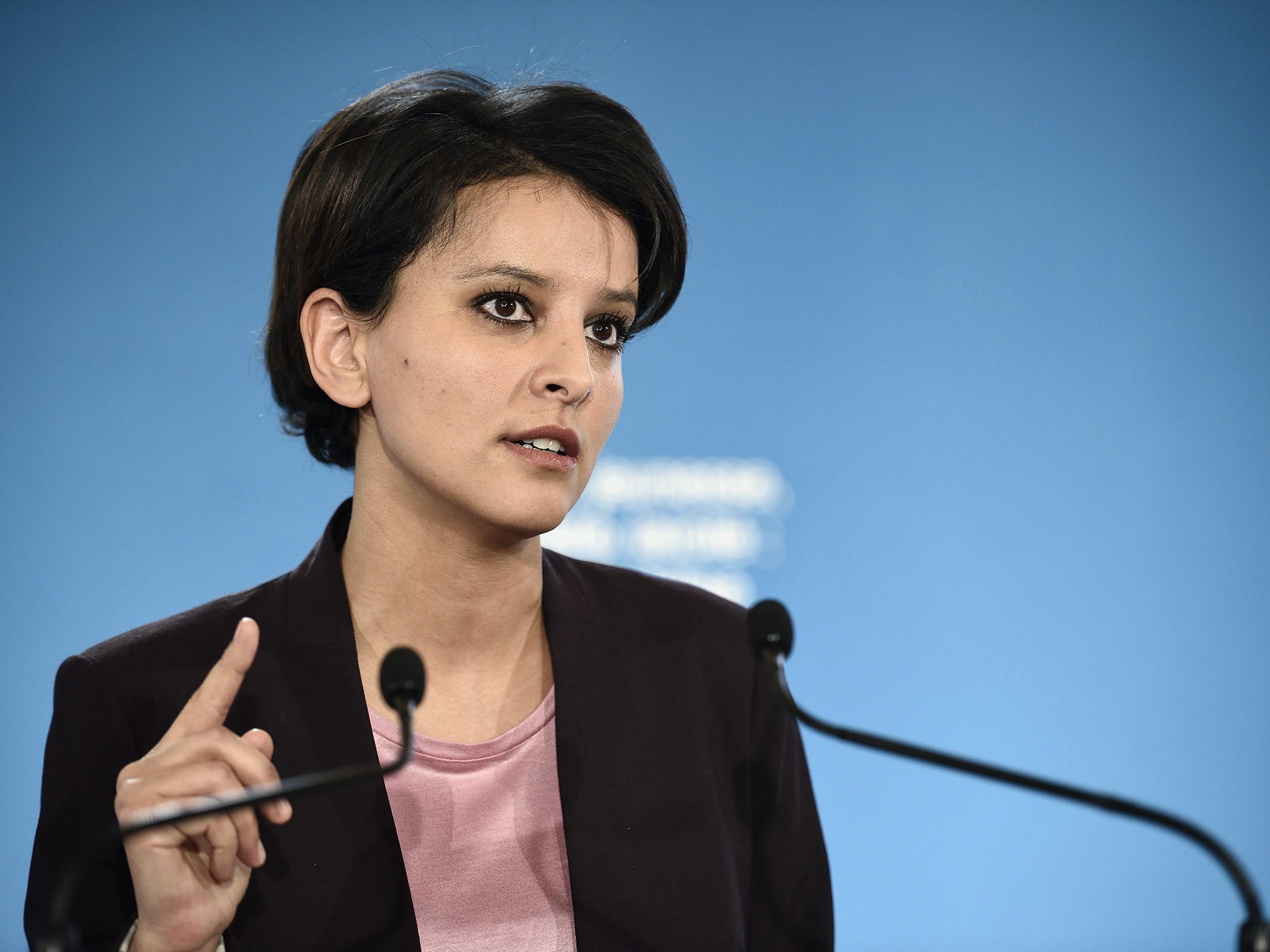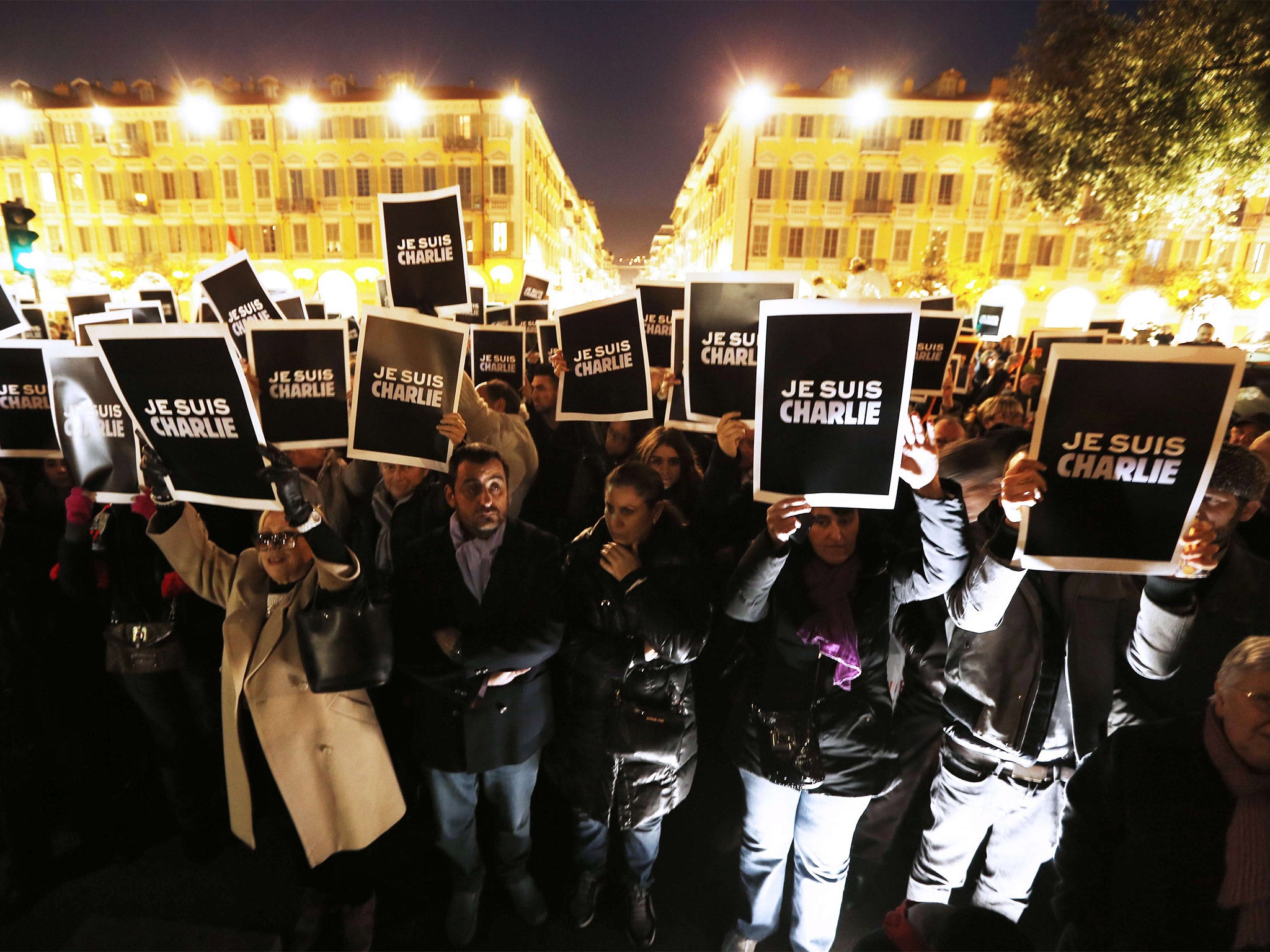Charlie Hebdo attack: War of ideas hots up as French police quiz eight-year-old
Boy claims: “I am not Charlie. I am with the terrorists”

Your support helps us to tell the story
From reproductive rights to climate change to Big Tech, The Independent is on the ground when the story is developing. Whether it's investigating the financials of Elon Musk's pro-Trump PAC or producing our latest documentary, 'The A Word', which shines a light on the American women fighting for reproductive rights, we know how important it is to parse out the facts from the messaging.
At such a critical moment in US history, we need reporters on the ground. Your donation allows us to keep sending journalists to speak to both sides of the story.
The Independent is trusted by Americans across the entire political spectrum. And unlike many other quality news outlets, we choose not to lock Americans out of our reporting and analysis with paywalls. We believe quality journalism should be available to everyone, paid for by those who can afford it.
Your support makes all the difference.France is divided over the case of an eight-year-old boy who was questioned by police for saying: “I am not Charlie. I am with the terrorists.” A moderate Islamic association said that the interrogation of Ahmed and his father was proof of a “collective hysteria” since 17 people died in terrorist attacks in Paris three weeks ago.
The education minister Najat Vallaud-Belkacem said the boy’s school had reacted “entirely correctly” by drawing his behaviour to the attention of education authorities and the police. She said that there was no question of legal action against the child but that a complaint had been made against his father for an allegedly “brutal” attitude towards school staff.
Arguments for and against the questioning of Ahmed became the hottest subject on French social media for most of the day. The boy and his father were ordered to go to a police station in Nice on Wednesday. On 8 January, the day after the attack on Charlie Hebdo, Ahmed refused to take part in a nationwide two-minute silence.
He was reported to have said in class and then again in the playground: “I am not Charlie. I am with the terrorists. The Muslims were quite right. The journalists deserved to die.” The child was questioned for 30 minutes by police. He was then allowed to play with toys while his father answered police questions.
Under questioning, Ahmed said that he did not know the meaning of the word “terrorist”. His father condemned what the boy was reported to have said but made a formal complaint about the decision to interrogate his son. “It’s crazy. This was out of all proportion,” said the family’s lawyer, Sefen Guez Guez. “They took seriously the words of an eight-year-old child, who doesn’t understand what he is saying.”

It was Mr Guez Guez who first revealed the questioning of the boy on Wednesday in a tweet. The lawyer is close to the pressure group Collective against Islamophobia in France. In his tweets, he claimed there had been a formal accusation against Ahmed of “apology for terrorism”. Police and education officials insisted yesterday the interrogation had been informal.
They said that there had been problems in the past with the boy’s behaviour in school and with the attitude of his father. Mr Guez Guez has formally accused the headmaster of the school of acting violently towards Ahmed after his remarks – something authorities deny.
In the wake of this month’s jihadist mayhem, the government has created a new website – www.stop-djihadisme.gouv.fr – to counter Islamist propaganda on the internet.
A two-minute video placed on the site warns that joining Isis or other jihadist groups is not a passport to paradise but a “ticket to hell”. It shows scenes of dead and injured children, crucifixions and the dumping of dead bodies in pits.
The EU, meanwhile, called for more help from internet companies to fight online terrorist propaganda. The Home Affairs Commissioner Dimitris Avramopoulos told reporters that the EU needs to deepen co-operation with the internet industry “and to strengthen the commitment of social media platforms in order to reduce illegal content online”. “We are now taking this co-operation further by deepening dialogue ... in order to develop concrete, workable solutions,” he said.
But policing the vast amount of material posted on social media is a major challenge. Omar Ramadan, head of the Radicalisation Awareness Network, a European group tackling extremism, told the Associated Press removing terror-related content from the internet was not enough. “If you’re only taking down content and not worrying about the people watching content, they will be searching for content elsewhere,” Mr Ramadan said.
In an interview with a Dutch newspaper, the EU counter-terrorism co-ordinator, Gilles de Kerchove, reportedly urged the bloc’s nations to hire PR experts to produce counter-propaganda.
Subscribe to Independent Premium to bookmark this article
Want to bookmark your favourite articles and stories to read or reference later? Start your Independent Premium subscription today.